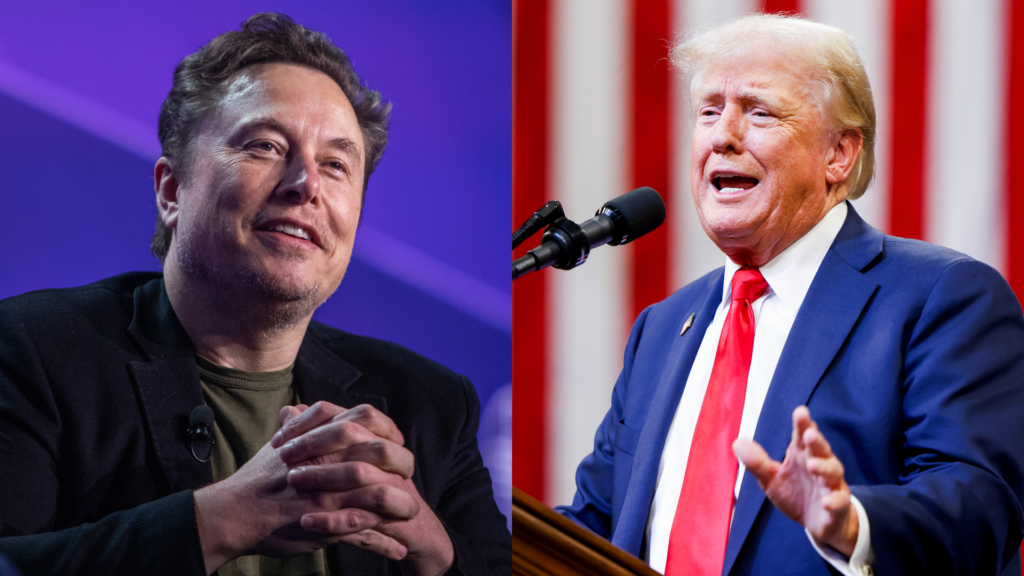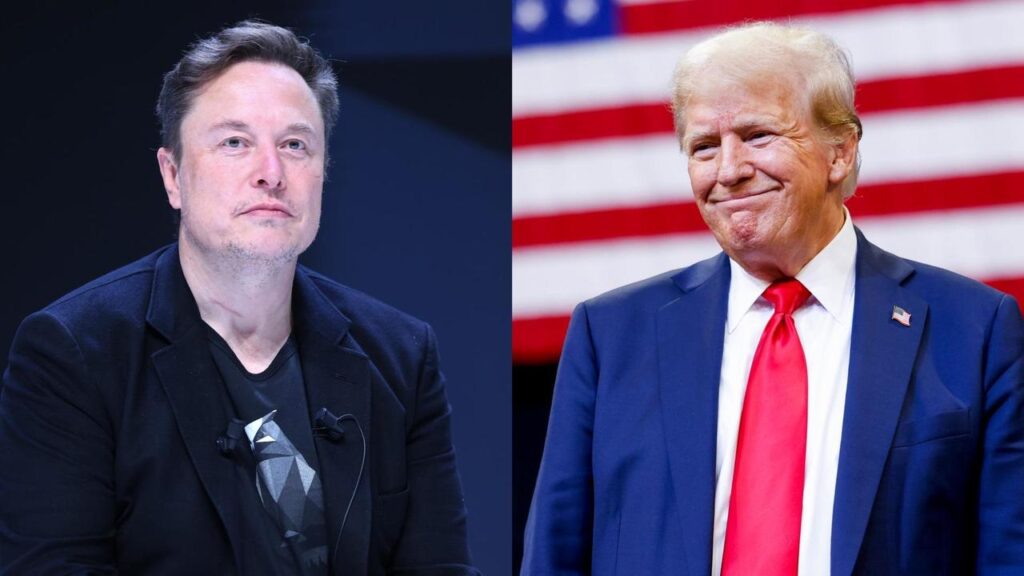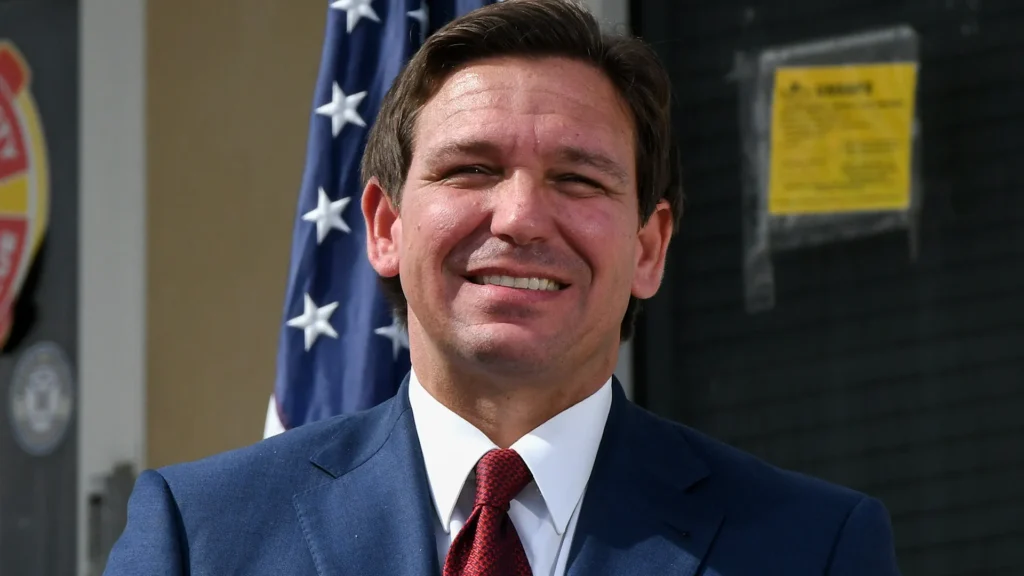Kamala Harris Reacts to Trump-Musk Interview: Catering to the Rich?

Explore the implications of the Trump-Musk interview as Kamala Harris criticizes their alliance, highlighting concerns about wealth, power, and middle-class representation in American politics.
In the ever-evolving landscape of American politics, the intersection of technology, media, and governance continues to shape the narratives that define our times. The recent interview between former President Donald Trump and billionaire entrepreneur Elon Musk has reignited discussions about the role of wealth and power in influencing political agendas. This blog post delves into Vice President Kamala Harris’ sharp critique of the Trump-Musk interview, exploring the implications of this high-profile conversation and its impact on the broader political landscape.
The Trump-Musk Interview: A Technical Glitch or a Political Statement?
The Trump-Musk interview on X Spaces, a live audio chat feature on X (formerly known as Twitter), was a much-anticipated event that drew millions of listeners. However, the interview’s rocky start, marred by technical difficulties, set the tone for a conversation that would soon become the subject of intense scrutiny. Despite the glitches, the interview covered a range of topics, from immigration to education policy, providing Trump with a platform to outline his views ahead of the 2024 presidential election.
For many, the technical issues were more than just a minor inconvenience; they symbolized the broader challenges of relying on technology to facilitate critical political discourse. The fact that the interview attracted millions of listeners despite these issues highlights the significant interest in Trump’s policies and the enduring influence of social media platforms in shaping public opinion.
Kamala Harris’ Critique: A Defense of the Middle Class?
In the aftermath of the interview, Kamala Harris’ presidential campaign wasted no time in criticizing both Trump and Musk. Harris’ spokesperson, Joseph Costello, issued a scathing statement accusing Trump of running a campaign that serves “self-obsessed rich guys who will sell out the middle class.” This critique goes beyond a simple jab at Trump’s policies; it speaks to a broader concern about the concentration of wealth and power in the hands of a few individuals who have the potential to sway political outcomes.
Harris’ criticism of the Trump-Musk interview also reflects a growing frustration among Democrats about the influence of billionaires like Musk in the political arena. By framing Trump and Musk as part of a wealthy elite that prioritizes their own interests over those of ordinary Americans, Harris positions herself as a champion of the middle class—a key demographic in the upcoming election.
The Role of Elon Musk: A Billionaire’s Influence on Politics
Elon Musk’s involvement in the Trump interview raises important questions about the role of billionaires in shaping political discourse. Musk, who has a history of controversial statements and actions, has positioned himself as a disruptor in both the tech industry and the political sphere. His ownership of X (formerly Twitter) and his willingness to engage directly with political figures like Trump demonstrate his growing influence in the public sphere.
However, Musk’s involvement also draws criticism from those who view his actions as self-serving. Critics argue that by providing Trump with a platform, Musk is using his wealth and influence to amplify the voices of those who share his views, rather than fostering a diverse and inclusive political dialogue. This concern is echoed in Harris’ critique, which paints Musk as part of a wealthy elite that is out of touch with the needs of everyday Americans.

Trump’s Policy Proposals: A Return to Controversial Ideas?
During the interview, Trump outlined several policy proposals that reflect his long-standing political beliefs. One of the most controversial ideas discussed was the elimination of the Department of Education, a move that Trump argues would return control of education to the states. While Trump framed this proposal as a way to improve educational outcomes, critics argue that it would exacerbate inequalities between states and undermine federal oversight of important issues like civil rights and special education.
Trump’s proposal to abolish the Department of Education is just one example of the broader “Project 2025” initiative, a conservative plan that includes a range of right-wing policy recommendations. The initiative, backed by the Heritage Foundation and other conservative groups, has been criticized as authoritarian and out of step with mainstream American values. While Trump has distanced himself from some aspects of the plan, the fact that it was discussed during the interview highlights its potential influence on his campaign.
Project 2025: A Radical Vision for America’s Future?
“Project 2025” is a controversial initiative that has become a focal point of debate in the 2024 presidential race. Authored by a coalition of conservative thinkers, including former Trump administration officials, the plan outlines a vision for America’s future that includes replacing civil service employees with Trump loyalists, criminalizing pornography, eliminating diversity, equity, and inclusion (DEI) programs, and infusing government with Christian values.
Critics of “Project 2025” argue that it represents a dangerous shift towards authoritarianism and Christian nationalism. The plan’s emphasis on replacing nonpartisan civil servants with political appointees raises concerns about the erosion of checks and balances in government. Additionally, the proposal to eliminate DEI programs has been condemned by civil rights groups as a step backward in the fight for equality.
Harris’ campaign has seized on the controversy surrounding “Project 2025” to paint Trump as a candidate who is out of touch with mainstream American values. By highlighting the more extreme aspects of the plan, Harris aims to appeal to voters who are concerned about the direction of the country under a potential second Trump administration.
The Importance of Middle-Class Voters: A Key Battleground in 2024
One of the central themes of Harris’ critique is the idea that Trump’s campaign is out of touch with the needs of middle-class Americans. This demographic has long been a key battleground in American elections, and both parties recognize the importance of winning over middle-class voters in the 2024 race.
Harris’ focus on the middle class is not just a political strategy; it reflects broader concerns about economic inequality and the concentration of wealth in the hands of a few individuals. By framing Trump and Musk as representatives of a wealthy elite who are disconnected from the realities of everyday Americans, Harris positions herself as a champion of economic fairness and social justice.
However, winning over middle-class voters is no easy task. The middle class is not a monolithic group, and their concerns vary widely depending on factors like geography, occupation, and education level. Harris’ challenge will be to craft a message that resonates with this diverse group while also appealing to other key constituencies within the Democratic base.
The Challenges of Balancing Wealth and Power in Politics
The Trump-Musk interview and Harris’ subsequent critique highlight the ongoing challenges of balancing wealth and power in American politics. As billionaires like Musk continue to play an increasingly prominent role in shaping public discourse, questions about the influence of money in politics have become more urgent than ever.
For Harris and other critics of the Trump-Musk alliance, the concern is not just about the concentration of wealth, but about the potential for wealthy individuals to use their influence to shape political outcomes in ways that benefit themselves at the expense of the broader public. This concern is particularly relevant in the context of the 2024 election, where the stakes are higher than ever.
At the same time, it is important to recognize that wealth and power are not inherently negative forces in politics. Billionaires like Musk have the resources and platform to bring attention to important issues and drive innovation in ways that can benefit society as a whole. The challenge is to ensure that this influence is wielded responsibly and in a way that aligns with the broader public interest.
The Future of Social Media in Political Discourse
The Trump-Musk interview also raises important questions about the role of social media in political discourse. Platforms like X (formerly Twitter) have become central to the way political messages are communicated and received, and the influence of these platforms is only likely to grow in the coming years.
However, the technical difficulties that marred the Trump-Musk interview also highlight the challenges of relying on social media as a platform for serious political discussion. While these platforms offer unprecedented reach and immediacy, they are also vulnerable to technical issues and the spread of misinformation.
For Harris and other political leaders, the challenge is to navigate this new media landscape in a way that ensures that political discourse remains informed, respectful, and accessible to all. This will require not only technical innovation but also a renewed commitment to the principles of transparency, accountability, and inclusivity in political communication.
The Broader Implications for the 2024 Election
As the 2024 election approaches, the Trump-Musk interview and Harris’ response serve as a microcosm of the broader dynamics at play in American politics. The intersection of wealth, power, and technology is reshaping the political landscape in ways that are both exciting and deeply concerning.
For voters, the challenge will be to navigate these dynamics and make informed decisions about the future of the country. The stakes are high, and the outcome of the election will have far-reaching implications for the direction of American society.
Harris’ critique of the Trump-Musk interview is just one example of how these dynamics are playing out on the campaign trail. As the election draws closer, it is likely that we will see more examples of how the influence of wealth and power is shaping the narratives that define this critical moment in American history.
Conclusion: A Call for Responsible Leadership
In conclusion, the Trump-Musk interview and Harris’ subsequent critique highlight the complex and often contentious relationship between wealth, power, and politics in America. As the 2024 election approaches, it is more important than ever for political leaders to engage in responsible leadership that prioritizes the needs of all Americans, not just the wealthy few.
Harris’ focus on the middle class and her critique of the Trump-Musk alliance reflect a broader concern about the direction of the country and the need for a political agenda that is inclusive, fair, and responsive to the needs of ordinary citizens. As the election unfolds, it will be up to voters to decide which vision of America’s future they believe is best for the country.
In the end, the Trump-Musk interview serves as a reminder of the power of technology to shape
political discourse, but also of the importance of ensuring that this discourse remains grounded in the values of democracy, equality, and justice. As we look ahead to the 2024 election and beyond, these principles will be more important than ever in guiding the future of American politics.
Also Read:
- Celebrating Mary Lou Retton: A Triumphant Journey from Olympic Glory to Unyielding Resilience
- Xiaomi Redmi Note 13 5G: Review & Specs Breakdown
- Maximizing Your iPhone 15 Pro Experience: Essential Tips and Tricks
- Bose Ultra Open Earbuds: Immersive Sound Review
- Fortnite Chapter 5 Season 2 End Date Revealed: Get Ready for May 24, 2024!
- OnePlus 12R vs Nothing Phone 2: Choosing Your Next Smartphone
- 2024 HP Spectre X360 Review: Top Features & Performance Analysis
- Ultimate Guide to WWE Elimination Chamber 2024: Winners, Matches, History & Predictions


